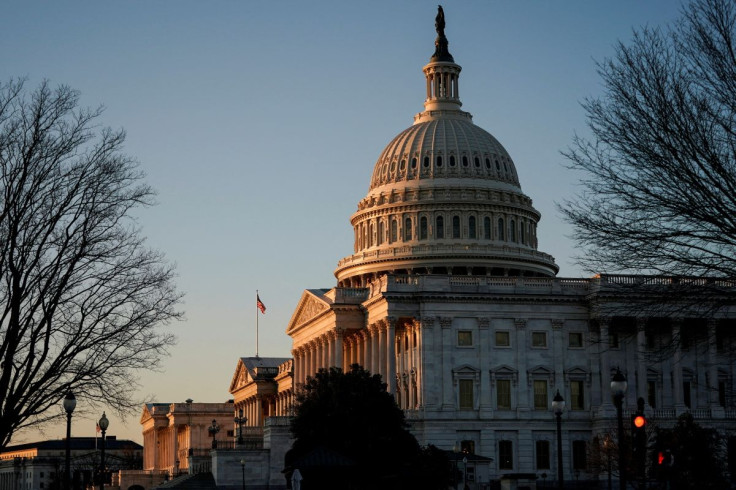U.S. Congressional Leaders Meeting On Semiconductor Chips Bill Tuesday

U.S. congressional leaders sought to forge a $52 billion bipartisan deal on Tuesday to subsidize U.S. semiconductor manufacturing and boost U.S. competitiveness with Chinese technology.
House Speaker Nancy Pelosi, Senate Majority Leader Chuck Schumer, both Democrats, met with House Republican Leader Kevin McCarthy and Senate Republican Leader Mitch McConnell to try to hammer out a compromise.
"We're working on it now," Schumer said as he headed into the meeting. A persistent shortage of chips has disrupted the automotive and electronics industries, forcing some firms to scale back production.
The two chambers have passed similar bills but key differences must be resolved.
The Senate legislation, passed in June 2021, included $52 billion for chips subsidies and authorized another $200 billion to boost U.S. scientific and technological innovation to compete with China.
The House version, passed in February, is nearly 3,000 pages long and includes a number of trade proposals not in the Senate bill. Some House provisions are likely to be removed for lack of approval in the Senate, officials say.
Democrats have warned that major investments in new U.S. chip production could be jeopardized without action from Congress. Democratic Senator Mark Warner told Reuters last week "the clock is ticking."
Michigan Governor Gretchen Whitmer and Indiana Governor Eric Holcomb said in a joint opinion piece https://www.ibj.com/articles/eric-holcomb-gretchen-whitmer-congress-needs-to-pass-innovation-legislation-soon for the Indianapolis Business Journal that governors of both parties "overwhelmingly agree that federal action is critical not only to address the semiconductor shortage we all face but also to realign national research and economic development priorities and leapfrog our adversaries."
Punchbowl News reported the planned congressional meeting earlier.
© Copyright Thomson Reuters 2024. All rights reserved.











